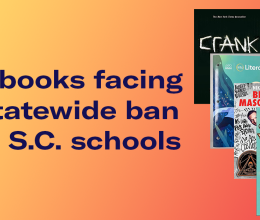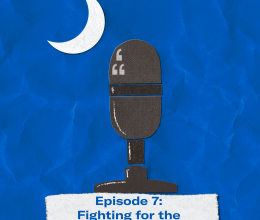
New Law Raises Constitutional Eyebrows
July 23, 2014. Columbia. Columbia Free Times. By Eva Moore. Columbia City Council approved a new ordinance July 15 that will allow “minor child play zones” in certain public parks — areas that people older than 12 are restricted from entering unless they’re accompanying a child.
The 3-2 decision opens the city up to legal action, with both the ACLU of South Carolina and the SC NAACP objecting, and to the potential loss of some federal parks funding.
City staff and Councilman Cameron Runyan developed the ordinance in response to complaints about adults — particularly homeless people — hanging out at Roy Lynch Park, a small park in the Elmwood Park neighborhood.
“We’ve been trying to get some action on this, and the police felt they couldn’t do anything,” one neighbor told Council at a recent meeting. “That park is basically a playground. It’s for children. And we need to ensure that those children are safe. I need to be able to feel like I can protect my grandson.”
Runyan says the ordinance will help protect kids from sex offenders and from adults using drugs, drinking and doing other things in parks, especially now that the city homeless shelter has closed.
“This helps police by giving them another tool — it gives them the opportunity to stop and interact with someone,” he said, adding, “There are 30 or 31 sex offenders not at the shelter anymore now that the shelter’s closed.”
The park is next to Logan Elementary, but several Logan parents have made it clear they’re not the ones clamoring for the ordinance. Instead, it’s people who live in the surrounding neighborhood.
“Logan Elementary is a very socioeconomically diverse school,” said Tracy Young, a Logan parent. “What message does it send to our homeless children that people like them are not welcome in the park across the street?”
Though Roy Lynch Park has been the focus, the ordinance could be applied to any city park by a simple vote of Council. The ordinance requires the city to listen to public input before voting on each play zone.
The new law also jeopardizes federal funding. According to new city attorney Teresa Knox, city parks get some federal dollars, and the city’s agreement with the feds requires that the city keep its parks public. “Kid only” areas can take up no more than half a public park.
“With federal funds, you can’t prevent public access,” Knox told Council. “So if the play zones take up more than 50 percent of the park, in effect we would be preventing public access.”
That could certainly happen in small parks like Roy Lynch, she said.
Council members got their hackles up over the ordinance, with Sam Davis and Tameika Isaac Devine facing off in a way they seldom do.
“When you drive by during the day and see some people doing some things maybe they shouldn’t be doing in the park, I tend to err on the side of the children,” Davis told his colleagues. “It’s better to have a reputation in this city that you shouldn’t mess with kids when they’re unsupervised.”
Even the loss of federal funding didn’t worry him, he said.
“There comes a time when you need to step up to the line and maybe cross the line and see what they do to you. I think there is a time when you have to protect children. … The people who are genuinely concerned about the children don’t have a problem with this ordinance.”
That incensed Devine, who lives near Roy Lynch Park and called Davis’ statements “highly offensive.”
“My children are, of anyone up here, most directly affected,” Devine said. “We play in that park all the time. [But] this ordinance doesn’t affect me: I have children,” she went on. “I’m reflecting concerns that have been raised to me. As representatives of the city we have to represent everyone.”
The city recently posted surveillance cameras in Roy Lynch Park; she wants to see how those work out before taking drastic steps.
And sex offenders are already banned from parks, she pointed out.
“There’s a belief that this ordinance could be potentially the silver bullet … that just someone’s presence there would be a violation and the officers would catch it,” she said — but that’s not the case.
Councilman Moe Baddourah, too, opposed the ordinance. He and Devine tried to send it to a committee for further study, but the motion failed.
“My kids go to the park every day,” Baddourah said. “I’m proud to say we welcome every guy, every girl who comes to the park. We don’t want any sex offenders or anyone that’s going to kidnap kids, but to make it a possibility where someone can profile somebody else, it makes it a concern for me.”
“Anybody who goes to a park to watch butterflies, to read a book, I hope this will not prevent them from doing that,” Baddourah said.
The ACLU chapter of South Carolina objected to an early draft of the ordinance, and Executive Director Victoria Middleton tells Free Times she doesn’t feel the city’s done much to address those concerns.
“We have yet to hear compelling justification for why it’s needed,” she said via email. “What crimes, serious or minor, that arise in this and other parks are not already covered by existing ordinance/law?”
“This has the potential to make criminals out of older children and elderly adults who are doing nothing other than sitting on a bench or leaning on a tree,” Middleton said in an earlier letter to Council. “If drugs are being used in the parks at night, if cigarette butts litter the parks, if people engage in inappropriately intimate behavior in the parks, if older child bully young children, law enforcement already has ordinances to restrict that behavior. The police do not need more ordinances to enforce. Unless the city is going to commit funds for more consistent police presence in the parks, the parks are not going to become safer places.”
The South Carolina chapter of the NAACP, too, opposes the law, with Director Lonnie Randolph addressing Council before its vote.
“There are some serious 4th amendment and 14th amendment concerns” with the law, Randolph said.
And Bruce Sanders, a frequent face at city meetings, spoke out against the restriction.
“I’m 50 years old and I like sliding down a slide,” he said. “And I helped pay for that park.”
Still, the new ordinance passed 3-2. Mayor Steve Benjamin joined Cameron Runyan and Davis in supporting the new law. Brian Newman and Leona Plaugh were not at the meeting.






